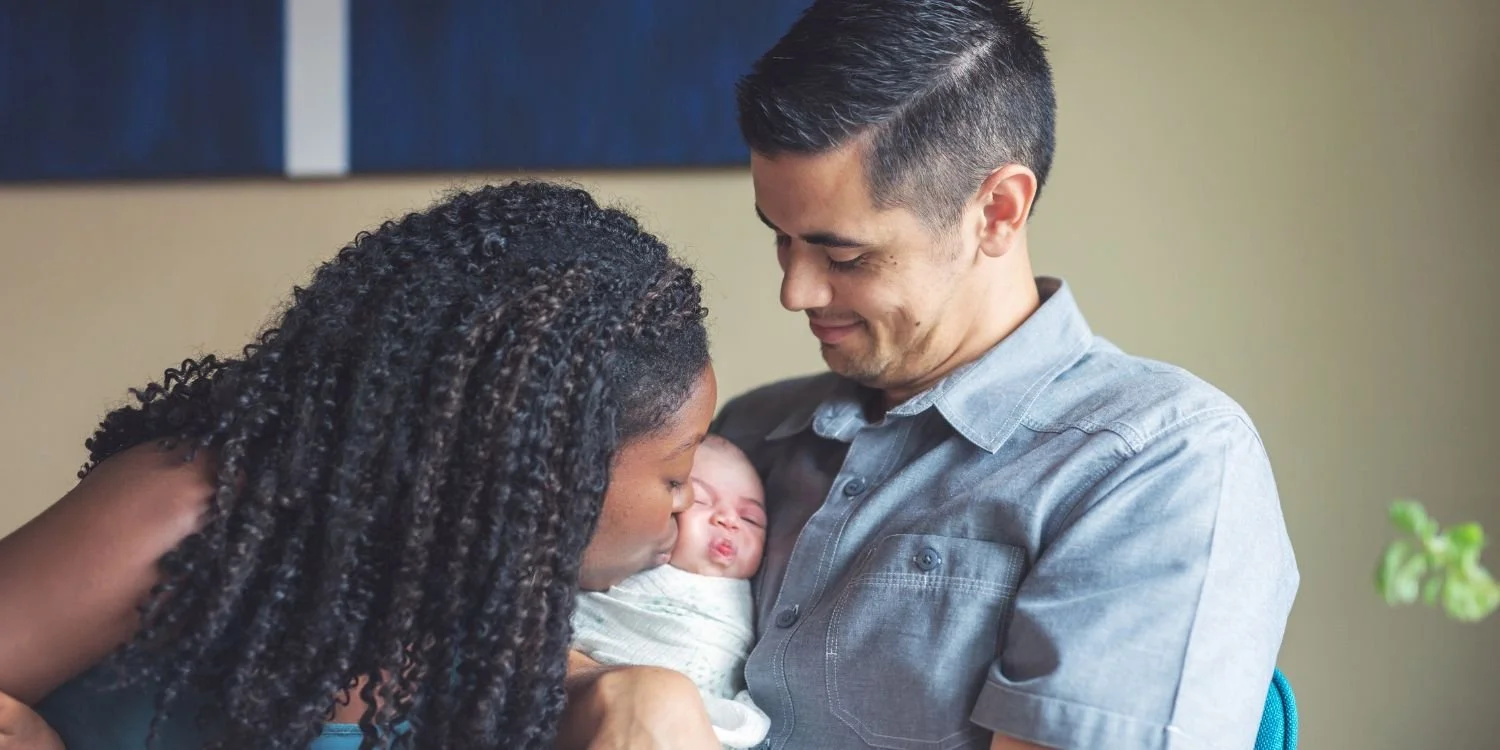Navigating Relationships After Having a Baby
Welcoming a new baby can fill hearts with boundless love and joy. Yet, amidst the wonder and awe, some challenges can strain our relationships.
From the euphoria of holding your newborn for the first time to the overwhelming sense of responsibility that settles in, new parents navigate through an emotional landscape that is as beautiful as it is challenging.
You're not alone if you're worried about your relationships after having a baby. This blog may help.
The Emotional Rollercoaster of New Parenthood
It's natural to experience a whirlwind of emotions as you adjust to the monumental changes new parenthood brings. The new responsibilities, coupled with sleep deprivation and hormonal fluctuations, can take a toll on one's emotional well-being. It's also not uncommon for new parents to experience feelings of overwhelm, inadequacy, or even guilt.
Put simply, postpartum emotions can make it feel like you're on an emotional rollercoaster ride. The spectrum of emotions is as vast as it is complex.
However, acknowledging that postpartum depression and anxiety are not signs of weakness but rather a reflection of the profound changes occurring within is a first step toward feeling like you again.
The Changing Relationship with Your Partner
A baby's arrival also alters the fabric of your relationship with your partner. From sleepless nights to endless diaper changes, the once carefree days you shared may seem like a distant memory.
Yet, amidst the chaos lies an opportunity to deepen your bond and keep the flame alive.
Schedule Quality Time: Schedule moments of intimacy and connection, whether it's a cozy evening at home or a leisurely stroll in the park.
Communicate Openly: Share your thoughts, fears, and joys honestly. Listen attentively to your partner's concerns and validate them.
Divide Responsibilities: Divide tasks such as childcare, household chores, and errands equitably, allowing both of you to feel supported and valued.
Prioritize Self-Care: Take time to recharge and rejuvenate. Remember that to take care of others, you must take care of yourself.
Celebrate the small wins. Remember to revel in the small victories as you navigate your relationship after having a baby—like cherishing a shared laugh over a diaper blowout.
Relationship changes after a baby are natural. But with a bit of intention, you can emerge more united than ever.
The Evolving Dynamics with Family and Friends
With the arrival of a baby, your priorities naturally shift, and the time and energy you once devoted to socializing may diminish. Here are a few things to keep in mind as your relationship with family and friends also starts to evolve:
Setting Boundaries and Expectations: Establish boundaries to protect your new family's time and space. Communicate your limitations openly and assertively, whether setting limits on visitors during the early weeks or carving out designated family time free from distractions. Let everyone know what to expect.
Asking for Support: Family and friends can be a valuable source of support for new parents. Whether offering a listening ear or providing practical assistance, lean on them when needed. People tend to want to help more than we realize.
Managing Opinions: A new baby can lead to people highlighting differences in parenting styles and philosophies, causing tension. Try to navigate these differences with empathy, but it's okay to shut them down if you need to.
Creating New Traditions: Shared experiences and fostering new traditions can strengthen bonds with friends and family while creating lasting memories.
Self-Identity and Independence: Building a Support Network and Seeking Professional Help
As you navigate changing relationships, grappling with questions of identity and independence is natural. Parenthood requires a delicate balance between nurturing your child and preserving your identity. It's essential to find moments of solitude and self-reflection.
However, allowing yourself that essential time to look after yourself often requires a strong support network. Lean on your trusted loved ones for assistance and seek new relationships with those who can relate. Parent groups and classes are great resources for this.
A mental health professional can be another great addition to your support network. Postpartum counselling can provide valuable guidance, helping you navigate the whirlwind of parenthood. When prioritizing your mental health, you can better care for yourself and your family.
Embrace Parenthood by Building Stronger Bonds
Changes in your relationships after having a baby are common and a natural part of the journey. The highs, lows, joys, and challenges are all part of navigating new parenthood.
You can embrace this new stage of life with resilience and joy by prioritizing your mental health and nurturing your connections. But if you're struggling to do so, know that you're not alone.
Contact Midtown Toronto Therapy for compassionate and professional guidance as you traverse new parenthood and evolving relationships.

